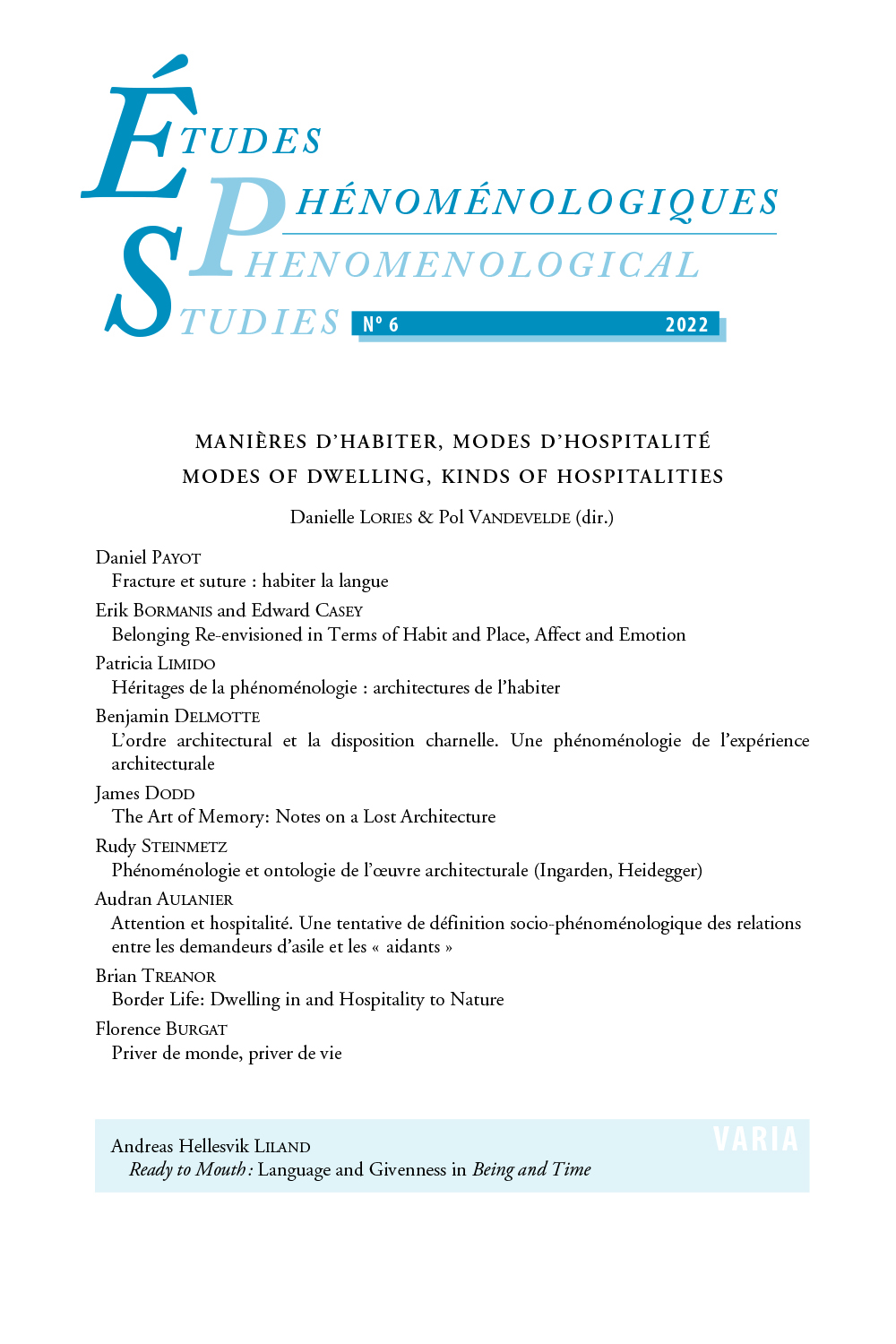 previous article in this issue previous article in this issue | next article in this issue  |

Preview first page |
Document Details : Title: Synthetic Unity of Consciousness in the Phenomenology of Edmund Husserl Author(s): KOZYREVA, Anastasia Journal: Etudes phénoménologiques - Phenomenological Studies Volume: 2 Date: 2018 Pages: 217-247 DOI: 10.2143/EPH.2.0.3254120 Abstract : This paper explores Husserl’s approach to synthesis as a primal form and function belonging to consciousness and examines the ensuing view on the unity of consciousness as enabled by temporal and associative syntheses. In the first part of the paper, I distinguish three main steps in the elaboration of the transcendental approach to subjectivity that contributed to the synthesis-based model of consciousness. The first step corresponds to Hume’s formulation of the problem of connections in his 'bundle theory of the self'. The second step is accomplished by Kant’s transcendental philosophy, in which he suggests taking synthesis as an essential feature of consciousness, claiming that the unity of apperception is what makes experience possible as such. The third step belongs to Husserl’s phenomenological philosophy and his account of the synthetic principle of unity as applied to experiential consciousness. In the second part of the paper, I present Husserl’s approach to synthetic unity of consciousness and his distinction between the temporal syntheses responsible for the formal connectivity of the conscious experience and the associative syntheses which operate essentially at the level of content. I argue that, in the light of this theory, consciousness can be seen not as a higher-order, objectifying act, nor as a quality added to experience; consciousness can instead be understood through its synthetic function which enables experience to be unified and congruent. |
|


